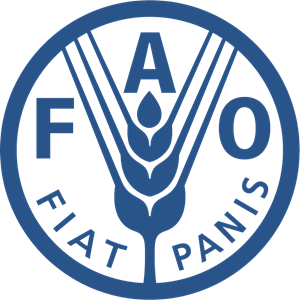The FAO and Sustainable Food Systems
4/19/20242 min read


The Food and Agriculture Organization of the United Nations (“FAO”) is a specialized agency of the United Nations tasked with the mission of addressing world hunger (FAO). Its primary objectives include the amelioration of poverty and enhancing food security and nutrition (FAO 2018).
It considers a food system as comprising all stakeholders and their value-adding activities in food "production, aggregation, processing, distribution, consumption, and disposal", as well as the contexts within which they operate (FAO 2018).
A food system which is sustainable, according to the FAO, is one which ensures global food security and nutrition while safeguarding the ability for future citizens of the world to secure the same, being commercially fruitful for all, benefitting society as a whole, and not generating negative environmental impacts (FAO 2018). The cultural dimension of food system sustainability should also be considered, given that the cultural acceptability of food production and accessibility touches upon human rights and dignity (Béné et al 2018).
Concerns about the food system have varied from the perspectives of the sufficiency of quantity, nutritional quality, distribution and accessibility, and systemic effects on the environment and natural resources (Béné et al 2018).
The emphasis on sustainability finds its roots in, amongst others, the 2015 adoption of the United Nations' Sustainability Development Goals, as well as socio-economic and environmental factors such as the high rate of increases in population, the growth of cities and their residents, higher income levels, shifts in consumer behaviour, intensifying international exchange of goods and services, the dwindling of natural resource, and broader climate impacts. (FAO 2018).
In adopting a food systems approach toward its activities, the FAO endorses five general types of interventions - (1) making data accessible, (2) encouraging evidence-based policy-making processes, (3) enhancing public-private partnerships, (4) building on and sharing local knowledge, and (5) enabling countries to prevent and mitigate related risks (FAO 2018).
Greater data accessibility will likely improve reliability and permit more informed strategies and execution. Evidence-based policies are likely to be more effective and therefore add to national acceptance and reinforcement. Public-private cooperation is necessary for sharing the efforts of transitional change while considering the different interests and abilities of various stakeholders. Local knowledge is key for forming a solid foundation of change from which changes at other scales can develop; further, “because our relation to food is primarily cultural [and] culture and identities are locally defined, local-specificity is central to food systems” (Béné et al 2018:127). Finally, comprehension of a country's long-term food system-related risks, threats, and vulnerabilities would support its ability to withstand adverse events.
References:
Béné, C., Oosterveer, P., Lamotte, L., et al. (2018). ‘When food systems meet sustainability – Current narratives and implications for actions’. World Development 113 (2019) 116-130. https://doi.org/10.1016/j.worlddev.2018.08.011
Food and Agriculture Organization of the United Nations ('FAO'). (2018). ‘Sustainable food systems: concept and framework’. http://www.fao.org/3/ca2079en/CA2079EN.pdf
FAO. https://www.fao.org/about/about-fao/en/#:~:text=The%20Food%20and%20Agriculture%20Organization,international%20efforts%20to%20defeat%20hunger.